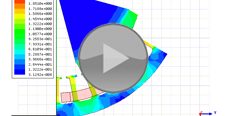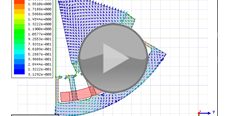Most viewed
- About NAU energy research
- Bicycle generator project
- 2015 Arizona wind & solar status report
- Education
- Energy experts
- Energy research
- Four Corners Wind Resource Center
- 2013 Arizona wind & solar status report
- Interactive Arizona wind map
Recent reports
- 2015 Arizona wind & solar status report
- 2013 Arizona wind & solar status report
- "The Future of Electricity: Embracing Transition"
- Prescott Airport solar facility & variability study
- Integration of Wind and Hydropower Systems: Issues, Impacts and Economics. Vol. 1
- Integration of Wind and Hydropower Systems: Case Studies. Vol. 2
NAU energy curriculum
NAU has a strong focus on education in sustainable energy and related topics. This takes place through formal university courses and guest lectures in NAU classes across campus. While a majority of our work is done in collaboration with the Engineering department, our group of energy experts has been active in curriculum building around campus. Explore the various university curriculum that involve energy topics below.
NAU courses on energy Accordion Closed
- Engineering 190: Energy Ecology and You
- Energy use and the human race; conventional energy sources; social, economic, and environmental impacts; alternative energy sources
- Engineering 501: Topics in Sustainable Systems
- Introduction to sustainability in the natural environment, energy and the built environment, and their relationship to engineering, plus ecoinformatics.
- Mechanical Engineering 435/535: Wind Energy Engineering
- Concepts, theory, and design of wind energy conversion systems. Topics include wind energy resources, wind turbine aerodynamics, mechanics, subsystems, design, development, economics, and policies.
- Mechanical Engineering 451: Renewable Energy Systems
- Fundamental concepts on renewable energy resources, conversion technology and hybrid system designs with an emphasis on solar photovoltaics and wind energy.
- Economics 526: Applied Environmental Economics
- Theory and public policy of natural resource economics; techniques for measurement and valuation, cultural, social and ethical issues surrounding natural resources; regulation of economic activity regarding natural resources.
- Economics 428: Advanced Energy Economics
- The relationship between energy, humans, and the environment, focusing on prospects for a sustainable energy future in urban areas, emerging societies and indigenous communities.
- Environmental Sciences 385: Energy Resource and Policy
- Origins and exploitation of energy and mineral resources, and the policies that control how we obtain and use them.
- Electrical Engineering 364: Fundamentals of Electromagnetics
- Static electric and magnetic fields. Time varying electromagnetic fields and Maxwell’s equations. Application to traditional circuit theory, RF circuit components, transmission lines, electromagnetic interference and electromagnetic compatibility.
- Electrical Engineering 464: Engineering Electromagnetics II
- Maxwell’s equations. Electromagnetic waves, transmission lines, antennas, microwaves, wave guides, cavity resonators.
- Electrical Engineering 401: Power Systems
- Overview of electric power system including case studies, mathematical calculations, and simulations of transmission line models, power flow, transformers, faults, system protection, and the stability of transmission systems.
- Environmental Sciences 675: Topics in Environmental Discourse
- Special topics course integrated as part of a three-semester series for the professional masters program. Focus on climate change adaptation, mitigation, and energy technologies and policy.
- Independent Study
- There are occasional independent studies through Mechanical Engineering and Electrical Engineering that have focused on energy. Current examples are a Market Issues of Wind Energy course and Wind Energy Control systems course taught strictly for the 2013-2014 Collegiate Wind Competition Team.
North American Wind Energy Academy (NAWEA)
NAU is a leader in developing NAWEA’s cross-institutional graduate certificate program, which will be used as a model for undergraduate wind-focused educational initiatives across universities. Giving students access to the leading minds in wind energy technology and policy through an accredited certificate program provides them with advanced educational and professional opportunities in this growing market.
Undergraduate wind turbine design
Following the 2013-2014 participation in the DOE Collegiate Wind Competition, NAU is collaborating with a number of other universities across the country to support undergraduate Capstone teams in designing small wind turbines. NAU Energy Education faculty are serving as the “client” for NAU’s team, which will test its turbine in the wind tunnel at NREL in spring 2015. Promoting and supporting continuous undergraduate coursework and research in wind technology design positions the university to participate in the biennial national competition and to serve as a partner for the small wind industry, as well as to collaborate with other strong wind turbine design universities in advanced research proposals to industry or national laboratories.
Advanced simulation
As part of a grant from the United States Department of Energy, NAU Electrical Engineering Professor Dr. Allison Kipple and Mechanical Engineering Professor Dr. Tom Acker developed laboratory activities that guide undergraduate engineering students through an advanced simulation of a residential wind generator.

